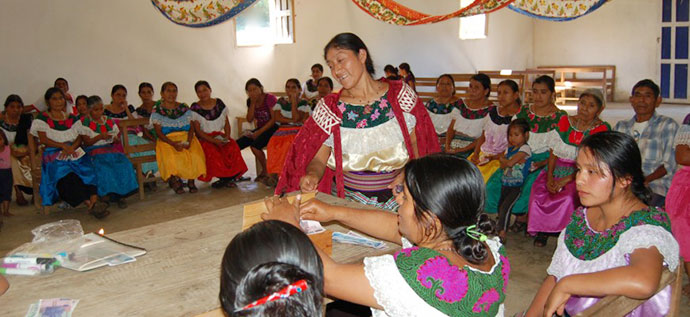
Throughout this election year, news outlets are constantly pushing out political commentary, debates and advertisements, and the heated rhetoric around immigration is at an all-time high. It is undeniable that Latin American migrants play a role in the U.S. economy and our society as a whole. But why are people from across Latin America choosing to leave their families in order to travel to a country that does not always welcome them with open arms?
Global Washington member One Equal Heart Foundation works in Chiapas, Mexico, a poor region with a high percentage of indigenous inhabitants. Chiapas shares a border with Guatemala and is one of the most dangerous segments of the journey for non-Mexican migrants as they enter into Mexico. One Equal Heart strengthens indigenous Tseltal Maya communities through high impact, community-driven development to alleviate poverty and improve well-being. Village-based training programs teach families to produce more food on their farms ecologically and to generate income through cooperatives and home-based businesses. The goal of this work is to foster sustainable development and build vibrant local economies so that people do not have to migrate to survive, but can instead live well on their ancestral lands.
In a recent interview, Jeannie Berwick, founder and executive director of One Equal Heart Foundation, shared insights regarding the root causes of migration. She pointed out that in analyzing migration patterns of Mexicans and Central Americans, we must look at both “push” and “pull” factors. In Berwick’s experience with indigenous people in Chiapas, the push is the lack of resources and opportunities in the region. The North American Free Trade Agreement (NAFTA) removed important productions for small-scale farmers in Mexico, making it virtually impossible for them to compete in the global market with large, subsidized U.S. companies. NAFTA has hindered local food production and reduced local job opportunities. Specifically migration that pushed indigenous people out of Chiapas accelerated after hurricane Wilma in 2005. Instead of sending aid to indigenous communities destroyed by the hurricane, the Mexican government invested millions to rebuild the major hotel districts, displacing indigenous people to make room for more tourist facilities, while recruiting poor indigenous farmers to leave their families in the highlands of Chiapas to provide low-paid manual labor in the Maya Riviera.
In addition to the pull factors at work inside Mexico, the reality of better wages in the United States is an even greater force. The minimum wage in Mexico is about $4.25 per day, but that number is much lower for rural subsistence farmers. In the U.S., the minimum wage is $7.25 per hour. Even if a migrant is paid under the table, they are likely to earn more than they would have back home. Berwick has witnessed first-hand the profound dilemma many face in finding the best way to provide for their families.
In addition to examining the root causes of migration, it is also important to understand who exactly is migrating. A common misconception in the U.S. is that illegal immigrants are all from Mexico. In reality, Mexico, Nicaragua, Honduras, Guatemala and El Salvador are just a few of the countries people are leaving. Migrants are often setting out for the U.S. not with a curiosity or desire for wealth, but for a concern for the basic wellbeing of their family. Many of the indigenous people migrating out of Chiapas are migrantes pendulares (pendulous migrants). Berwick noted that now that the construction jobs in the Maya Riviera have slowed down, many indigenous people from Chiapas journey to large farms in places such as Sinaloa, Mexico to find temporary work so they can feed their families, returning home after a few months. Similarly, Berwick strongly believes that, with more flexibility for Central Americans and Mexicans to enter into the United States, many would choose to work temporarily then return to their families.
While presidential candidates often debate the building of a wall and other border-blocking strategies, this will certainly not put a stop the flow of migration. Cited in a One Equal Heart blog, New York Times writer Thomas Friedman states, “We have to help them [farmers] fix their gardens because no walls will keep them home.” One Equal Heart Foundation looks to find pragmatic ways to help those in Chiapas stay home. To read more about the organization and their work in Chiapas, visit their website.